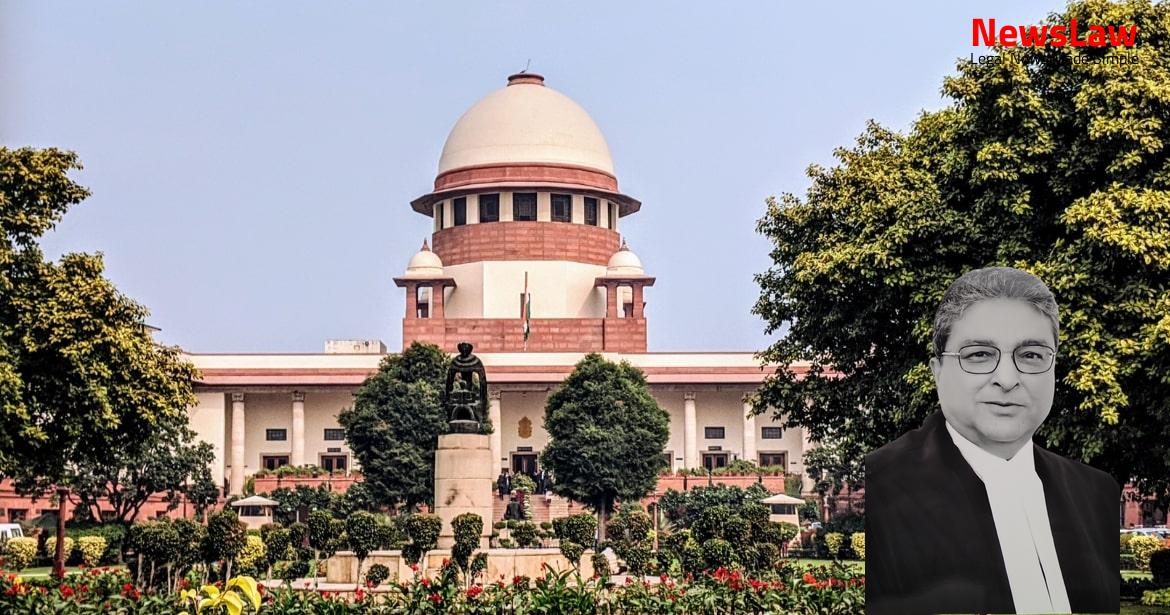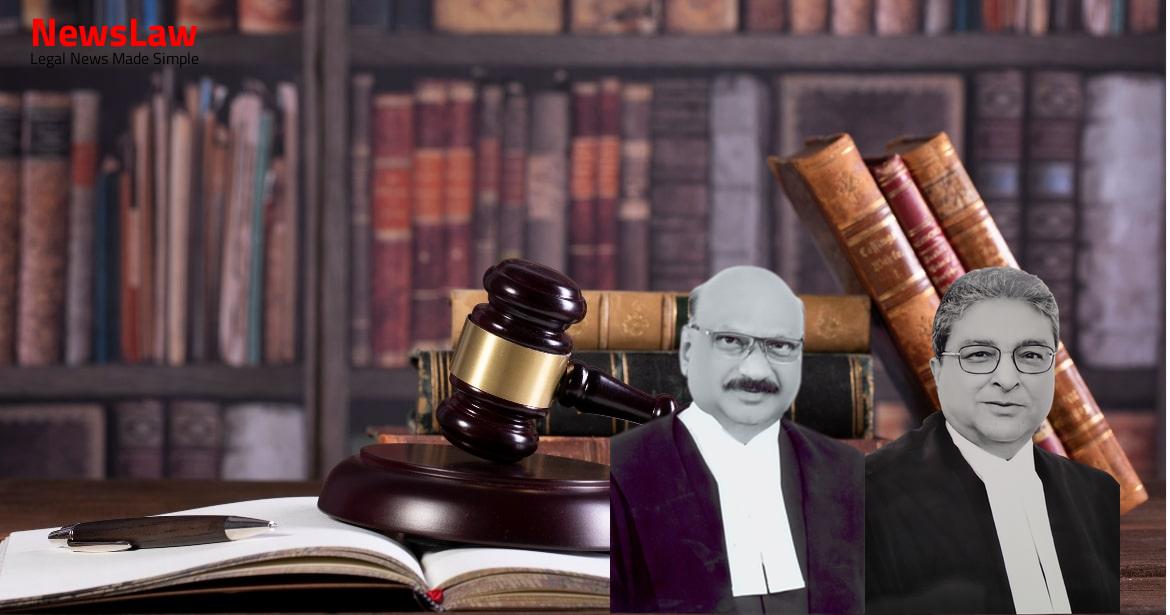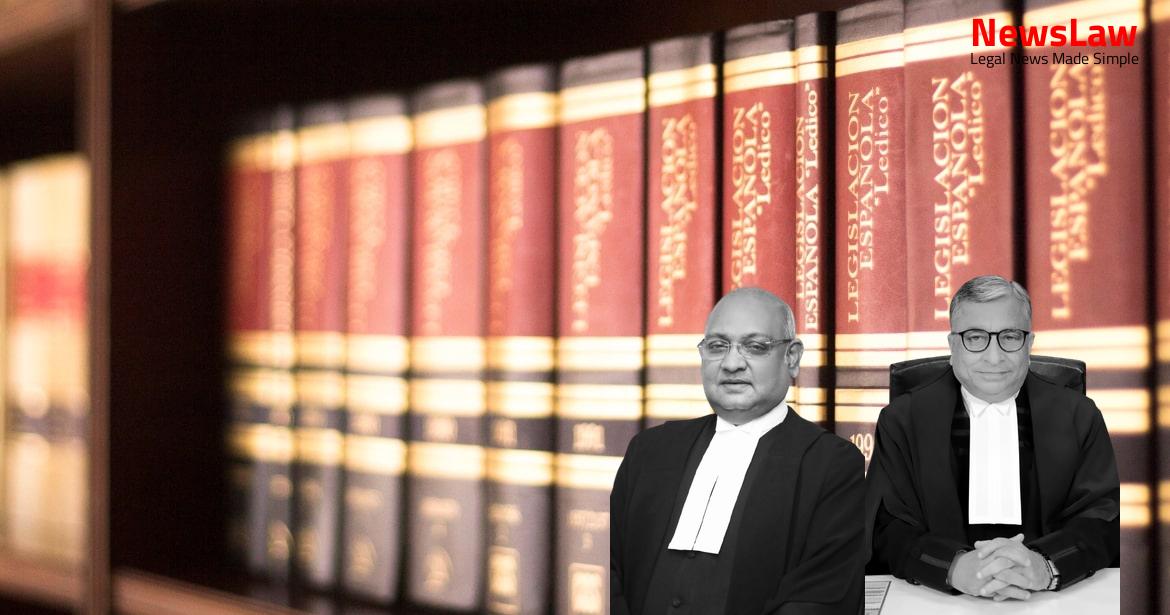The appeal filed by the appellant-accused is directed against the judgment and order dated 30.09.2016 passed by the High Court of Delhi in Criminal Appeal No.46/2016, whereby the High Court while disposing of the appeal has modified the judgment and order dated 27.11.2015 passed by the Additional Sessions Judge, Special Fast Track Court, Dwarka Courts, New Delhi (hereinafter referred to as the Sessions Court) in Sessions Case No 67/2015. The case of the prosecution as laid before the Sessions Court was that the prosecutrix was residing in a tenanted premises at C-1/3/5, Sanjay Enclave, Uttam Nagar, Delhi with her husband and three children in the year 2009. The prosecutrix had further alleged in the complaint that the accused had lied to her that he had gone to his native place, but in fact he had not gone, which she came to know when she visited the call center where the accused was working. After the examination of eleven witnesses by the prosecution, the 4 incriminating evidence was brought to the notice of the accused for the purpose of explanation under Section 313 of Cr.PC, however the accused denied the allegations levelled against him and further stated that he was having consensual physical relations with the prosecutrix and that she was aware that he was a married person having children, and that she had also met his wife at his house.
Also Read: https://newslaw.in/supreme-court/illegality-of-arrest-under-pmla/
Pressing into service Section 375 read with Section 90 of IPC, he submitted that the prosecutrix having admitted in her evidence that she was a consenting party to the sexual relationship with the appellant since 2009-2010, and that it continued even after the delivery of the child in 2011, till filing of the complaint in 2015, it could not be said by any stretch of imagination that the appellant-accused had committed rape within the meaning of Clause-Secondly of Section 375 read with Section 90 of IPC. K.L Janjani, learned counsel appearing for the respondent- State however submitted that the Sessions Court and the High 6 Court having concurrently recorded findings of facts against the appellant-accused, holding him guilty under Section 376 IPC, this Court should not interfere with the same.
According to him, even otherwise, the prosecution had proved beyond doubt that the appellant-accused had lured the prosecutrix to have sexual relationship with him by giving her a false promise that he would marry her, however, he committed breach of the promise after she delivered the child, which clearly proved that her consent was obtained by the appellant under the misconception of fact.
For the better appreciation of the submissions made by the learned counsels for the parties, the relevant provisions contained in Section 90 and Section 375 of IPC, are reproduced below:- “90. — unless the contrary appears from the context, if the consent is given by a person who is under twelve years of age. Thirdly – With her consent, when her consent has 8 been obtained by putting her or any person in whom she is interested in fear of death or of hurt. Fifthly – With her consent when, at the time of giving such consent, by reason of unsoundness of mind or intoxication or the administration by him personally or through another of any stupefying or unwholesome substance, she is unable to understand the nature and consequences of that to which she gives consent. As per the said provision, if sexual intercourse by the accused is proved and the question arises as to whether it was without the consent of the woman alleged to have been raped, and if she states in her evidence before the court that she did not consent, the court shall presume that she did not consent.
In our opinion, the expression “misconception of fact” contained in Section 90 IPC is also required to be appreciated in the light of the Clauses – contained in Section 375 IPC, more particularly the Clauses – Thirdly, Fourthly and Fifthly thereof, when the accused is charged for the offence of ‘rape’. As per the Clause – Fourthly, with her consent, when the man knows that he is not her husband and that her consent is given because she believes that he is another man to whom she is or believes herself to be lawfully married; and as per the Clause – Fifthly, with her consent when at the time of giving the consent, the prosecutrix by reason of unsoundness of mind or intoxication or the administration of stupefying or unwholesome substance by the accused or through another, she is unable to understand the nature and consequences of that to which she gives consent. The ratio laid down in the judgements or 11 the law declared by this Court do provide the guidelines to the judicial mind of the courts to decide the cases on hand, but the courts while applying the law also have to consider the evidence before them and the surrounding circumstances under which the alleged offences are committed by the accused. It therefore appears that the consensus of judicial opinion is in favour of the view that the consent given by the prosecutrix to sexual intercourse with a person with whom she is deeply in love on a promise that he would marry her on a later date, cannot be said to be given under a misconception of fact.
It must also weigh the evidence keeping in view the fact that the burden is on the prosecution to prove each and every ingredient of the offence, absence of consent being one of them. Keeping in view the approach that the court must adopt in such cases, we shall now proceed to consider the evidence on record. All these circumstances lead us to the conclusion that she freely, voluntarily and consciously consented to having sexual intercourse with the appellant, and her consent was 13 not in consequence of any misconception of fact.” In Deelip Singh alias Dilip Kumar Vs.
While we reiterate that a promise to marry without anything more will not give rise to “misconception of fact” within the meaning of Section 90, it needs to be clarified that a representation deliberately made by the accused with a view to elicit the assent of the victim without having the intention or inclination to marry her, will vitiate the consent. This is what in fact was stressed by the Division Bench of the Calcutta High Court in the case of Jayanti Rani Panda [1984 Cri LJ 1535 : (1983) 2 CHN 290 (Cal)] which was approvingly referred to in Uday case [(2003) 4 SCC 46 : 2003 SCC (Cri) 775 : (2003) 2 Scale 329].
Reading the judgment in Uday case [(2003) 4 SCC 46 : 2003 SCC (Cri) 775 : (2003) 2 Scale 329] as a whole, we do not understand the Court laying down a broad proposition that a promise to marry could never amount to a misconception of fact.
Also Read: https://newslaw.in/case-type/criminal/conviction-upheld-in-high-court-in-a-case-of-deadly-assault/
Thus, the court must examine whether there was made, at an early stage a false promise of marriage by the accused; and whether the consent involved was given after wholly understanding the nature and consequences of sexual indulgence. at the initial stage itself, the accused had no intention whatsoever, of keeping his promise to marry the victim. If the accused has not made the promise with the sole intention to seduce the prosecutrix to indulge in sexual acts, such an act would not amount to rape. The acknowledged consensual physical relationship between the parties would not constitute an offence under Section 376 IPC.” Now, in the instant case, having regard to the statutory provisions and their interpretations by this Court in various judgements, one may be tempted to hold the appellant-accused guilty of the offence under Section 376 IPC as has been done by the Sessions Court and the High Court, however, on the closer scrutiny of the evidence on record, we find that it was fallacy on the part of the courts below to hold the appellant guilty under Section 376 IPC.
The bone of contention raised on behalf of the respondents is that the prosecutrix had given her consent for sexual relationship under the misconception of fact, as the accused had given a false promise to marry her and subsequently he did not marry, and therefore such consent was no consent in the eye of law and the case fell under the Clause – Secondly of Section 375 IPC. In case 18 of false promise, the accused right from the beginning would not have any intention to marry the prosecutrix and would have cheated or deceited the prosecutrix by giving a false promise to marry her only with a view to satisfy his lust, whereas in case of breach of promise, one cannot deny a possibility that the accused might have given a promise with all seriousness to marry her, and subsequently might have encountered certain circumstances unforeseen by him or the circumstances beyond his control, which prevented him to fulfill his promise.
Even otherwise, if her entire conduct during the course of such relationship with the accused, is closely seen, it appears that she had betrayed her husband and three children by having relationship with the accused, for whom she had developed liking for him.
Till the time she was impregnated by the accused in the year 2011, and she gave birth to a male child through the loin of the accused, she did not have any complaint against the accused of he having given false promise to marry her or having cheated her. needs to be made, which reads as under: – “276 (1) In all trials before a Court of Session, the evidence of each witness shall, as his examination proceeds, be taken down in writing either by the presiding Judge himself or by his dictation in open Court or, under his direction and superintendence, by an officer of the Court appointed by him in this behalf. In every case where evidence is taken down under section 275 or section 276, – (a) if the witness gives evidence in the language of the Court, it shall be taken down in that language; (b) if he gives evidence in any other language, it may, if practicable, be taken down in that language, and if it is not practicable to do so, a true translation of the evidence in the language of the Court shall be prepared as the examination of the witness proceeds, signed by the Magistrate or presiding Judge, and shall form part of the record; (c) where under clause (b) evidence is taken down in a language other than the language of the Court, a true translation thereof in the language of the Court shall be prepared as soon as practicable, signed by the Magistrate or presiding Judge, and shall form part of the record: Provided that when under clause (b) evidence is taken down in English and a translation thereof in the language of the Court is not required by any of the parties, the Court may dispense with such translation”.
Also Read: https://newslaw.in/case-type/criminal/statutory-right-of-default-bail-in-incomplete-chargesheet/
If the witness gives evidence in any other language, it may, if practicable, be taken down in that language, and if it is not practicable to do so, a true translation of the evidence in the language of the court may be prepared.
However, recording of evidence of the witness in the translated form in English language only, though the witness gives evidence in the language of the court, or in his/her own vernacular language, is not permissible. (AJAY RASTOGI)……………………..J.
Case Title: NAIM AHAMED Vs. STATE (NCT OF DELHI) (2023 INSC 85)
Case Number: Crl.A. No.-000257-000257 / 2023



